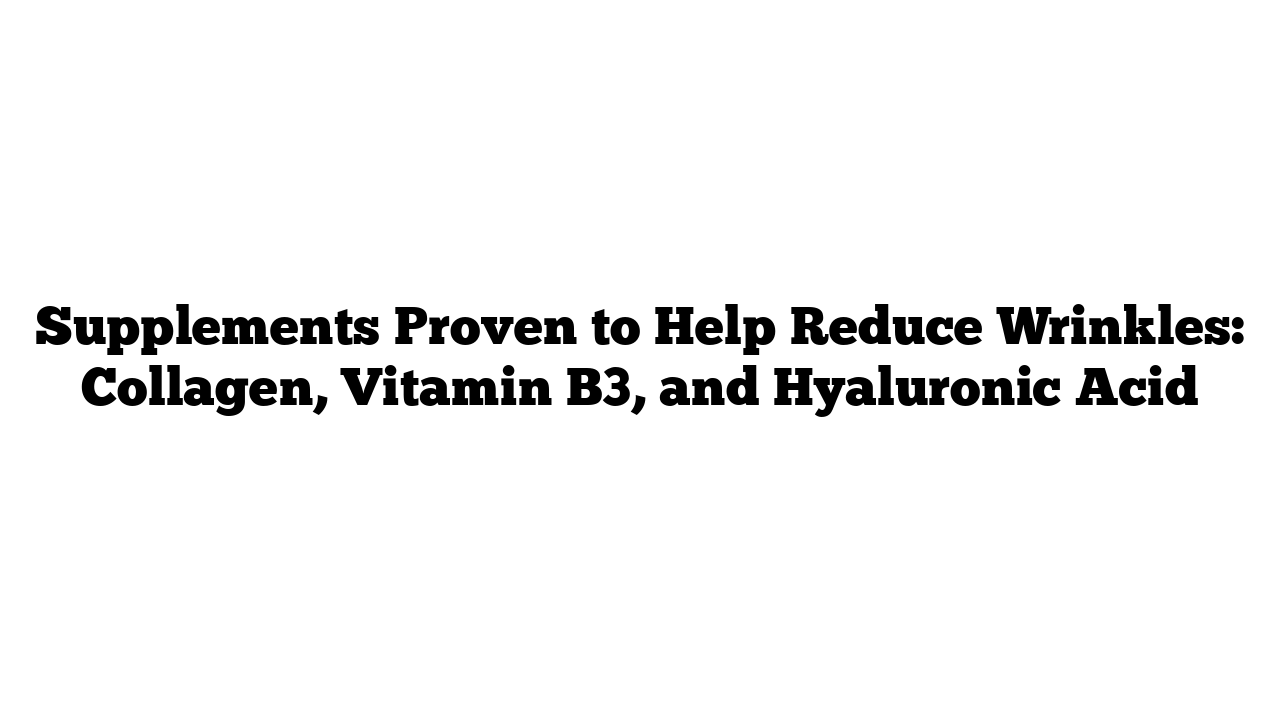In today’s supplement market, sorting through wrinkle-reducing claims can be overwhelming. Fortunately, a few supplements stand out with strong evidence from human trials, providing real results in wrinkle reduction. Here, we’ll dive into three supplements with documented effects on skin health and explore the science behind their efficacy.
1. Collagen Peptides
Collagen is a protein essential for skin elasticity and hydration. Collagen peptides, a popular supplement form, are designed to be easily absorbed. But do they really work?
What the Research Shows
Research consistently points to the benefits of collagen peptides. In a 2014 placebo-controlled trial, participants taking collagen peptides saw a 7% improvement in skin elasticity. Follow-up studies in 2015 demonstrated significant improvements in skin hydration and elasticity compared to a placebo group, confirmed through skin biopsies that showed a 12% increase in collagen in the skin.
A comprehensive meta-analysis in 2023, combining multiple studies, further supported these findings, showing that collagen peptides improved skin hydration and elasticity across all studies evaluated. For those concerned that dietary protein alone might suffice, research in burn patients suggested that collagen peptides sped up wound healing beyond regular protein intake. This suggests that collagen supplements offer unique skin benefits.
Suggested Dosage: 10–15 grams daily.
2. Vitamin B3 (Niacinamide)
Vitamin B3, also known as niacinamide, is commonly included in skin creams for its proven benefits against fine lines and wrinkles. However, it’s effective in supplement form too.
Notable Studies
In a 2015 randomized controlled trial with 386 participants, those who took vitamin B3 showed a 23% reduction in new skin cancer rates compared to a placebo. Despite some debate over these findings, niacinamide remains widely recognized for its potential to support NAD+ levels, which is essential for skin cell repair and longevity.
While results may vary, vitamin B3 remains a promising choice for those seeking skin benefits and added sun protection.
Suggested Dosage: 50 mg daily.
3. Hyaluronic Acid
Hyaluronic acid (HA) naturally occurs in our skin and joints, holding moisture to keep tissues hydrated and firm. Unfortunately, its levels decline with age, leading to dry, less resilient skin.
Evidence from Human Trials
A 2017 study found that both long and short chains of hyaluronic acid significantly improved skin wrinkles compared to a placebo. Subsequent studies in 2021 further supported these benefits, with one showing an 18% reduction in wrinkle appearance. Importantly, these results did not show any conflicts of interest, as they were not funded by supplement companies.
Concerns have been raised on social media about HA potentially promoting cancer growth, but studies in mice with existing cancer showed no effect on cancer progression when taking hyaluronic acid supplements.
Suggested Dosage: 200 mg daily (in low-molecular-weight form for better absorption).
Additional Skin Care Recommendations
Apart from supplements, certain skincare products have strong evidence for wrinkle reduction. Consider using broad-spectrum sunscreens, retinoid creams, moisturizers with ceramides, and nicotinamide (a form of vitamin B3), as these are known to enhance skin health and resilience against aging.
By incorporating these evidence-backed supplements and skincare tips, you can take effective steps toward healthier, more youthful skin. Be sure to consult with a healthcare provider before beginning any new supplement regimen.
For more in-depth information on skin health and supplements, visit medicaltimes.io.
